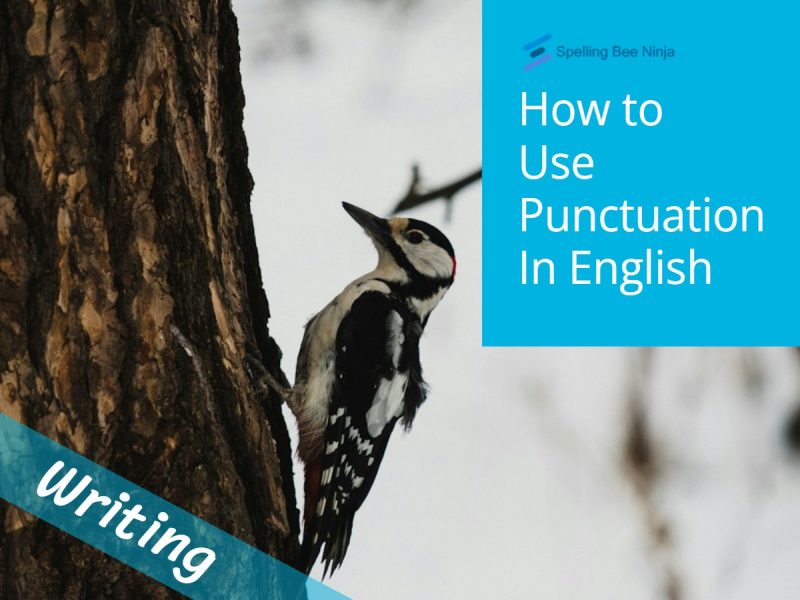Writing is a reliable form of communication which must be written in complete sentences. These sentences will be more meaningful with the correct use of punctuation. In English writings, punctuation are symbols that cannot be separated from any written work, both in formal and informal settings.
If there are punctuation errors in English writings, it will be difficult to understand. Thus, the meaning of some sentences cannot be conveyed well to the readers. As a consequence, it is extremely important to understand how to use punctuation more properly and effectively in English writings.
The Importance of Punctuation in English
If you’re questioning how to use punctuation in English the right way, it’s good to know its importance in a sentence. The process of transforming a set of words through the use of specific symbols is generally defined as punctuation. Readers can easily read and comprehend these words that have been processed into structured sentences.
Intonation and Punctuation
By speaking directly, the speaker can clearly emphasize the sentence through their intonation. However, punctuation plays a significant role when writing. Like intonation, it plays the same role in providing emphasis in writing. Hence, misinterpretation of sentences and ambiguity in meanings can result from punctuation errors in writing.
In a sentence, punctuation is useful to indicate the structure of the writings. This helps to determine intonation and pauses when reading.
Pay attention to the differences between the two paragraphs below. You can clearly see why punctuation is so important in writing.
Without Punctuation
That morning it rained heavily I felt confused about how to go to school in such bad weather I immediately looked at the rain from the window when suddenly my cell phone rang I immediately answered the call It turns out the call came from my friend Emily Emily said she would pick me up because she knew I had difficulty going to school in the rain Wow I was so lucky that one morning
With Punctuation
That morning, it rained heavily. I felt confused about how to go to school in such bad weather. I immediately looked at the rain from the window, when suddenly my cell phone rang. I immediately answered the call. It turns out the call came from my friend, Emily. Emily said she would pick me up, because she knew I had difficulty going to school in the rain. Wow! I was so lucky that one morning.
Hereby, readers can gain a better understanding of the writing content by incorporating punctuation that is relevant to the sentence. However, punctuation marks cannot be arbitrary in their use. They are required to comply with a certain number of rules. Precision is necessary when using punctuation such as commas, periods, question marks, quotations, exclamation marks, and so on.
Common Punctuation in English and How to Use Them
In terms of how to use punctuation in English, it’s best to understand the golden rule of each symbol. In addition, also know how to put them properly into sentences. Punctuation often helps readers understand whether a sentence fits the context of the discussion or circumstances. In English, punctuation are common that enable writers to make stops, pauses, emphasize, or question certain parts of a sentence.
Periods or Full Stops (.)
The full stop is another term for a period that is used to mark the end of a sentence. When a sentence ends with a full stop, it is considered a complete sentence. A sentence that is both complete and declarative is referred to as a full sentence, in this case. Intuitively marked declarative sentences are typically used to state or convey something. Apart from being a symbol to end a sentence, a full stop can also be used to indicate initials of a person’s name and abbreviations (time, measurement, direction, etc.).
Examples:
At the end of a sentence:
- We were having dinner at a famous restaurant.
- She promised to come to the festival tomorrow.
Initials or personal names:
- Thomas Alva Edison → Thomas A. Edison
- William Edward Burghardt Du Bois → W. E. B. Du Bois
Abbreviations:
- WHO → World Health Organization
- Mister → Mr.
- Exempli gratia → e.g.
- Ante Meridiem → a.m.
- Street → St.
- Inch → in.
Commas (,)
If a full stop is placed at the end of a sentence, a comma is not permitted. There are many functions of commas, mainly as a pause sign for readers. The following is an explanation of other comma functions with examples:
In used to separate words that form a list:
My morning routine involved getting out of bed, taking a shower, and brushing my teeth before getting ready for school.
In use to separate phrases or clauses connected by linking words (and, but, for, or, so, etc.):
- I went to school, but my brother went to work.
- It’s sunny out, so put a hat on.
To indicate information:
- Smith, an English teacher, won an award recently.
- Lucy, my best friend from California, was in town for the holidays.
To answer yes/no questions:
- Yes, I really like chocolate.
- No, I don’t want another cup of coffee.
Dates:
Baby Chris was born on Saturday, December 16, 2023.
Question Marks (?)
The purpose of this punctuation is to emphasize that the sentence being written is a question sentence. When using a question mark is that it can only be placed at the end of a sentence. So, question marks can be a substitute for full stops.
Examples:
- How long have you been married?
- “Which Christmas ornaments do you like best?” asked mom. Exclamation Marks (!)
Like period and question marks, exclamation marks are also used to end a sentence. This punctuation is specifically to show the presence of strong emotion or emphasis in the sentence. Usually it is used in informal writing. The emotions shown in using exclamation marks vary, including anger, enthusiasm, and others. Examples:
- Hey, don’t touch it! It’s dangerous!
- “Andy!”, the teacher shouted. “Sit down!”
Final Thoughts
To conclude, the use of punctuation is mostly associated with stop, pause, emphasize, and question punctuation. The structure of writing can be made clear and effective by using these primary punctuation marks. Make sure you know how to use punctuation marks the right way.
- ✈️ How to Use Articles in English
- 🐝 Mastering Adjectives: A Key to Enhancing Your Writing Skills
- 🎮 Pronoun Puzzle: A Fun Way to Practice Personal and Possessive Forms
- 🎮 Adjective Adventure: Descriptive Word Search!
- ✈️ How to use prepositions in English
- ✈️ English Adverbs – 5 Quick and Easy ways to learn.
- The definitive pronouns list
- 🐝 Understanding conjunction words and where to use them
- ✈️ Modal Verbs in English: A Comprehensive Guide
- 🐝 Prepositions list – The definitive guide
- ✈️ Active and Passive Voice
- ✈️ What vs Which: differences and examples
- 🐝 Complete transition words list
- ✈️ How to Use Punctuation in English
- ✈️ Exploring the Difference Between “Will” and “Shall” in English
- ✈️ The Difference Between Could, Should, and Ought in English
- ✈️ Common Idiomatic Expressions in English
- ✈️ 40 English Prefixes and their meanings
- ✈️ 30 Most common English suffixes and their meaning.
- 🐝 Linking Words In English And How To Learn Them Effectively
- ✈️ Comparative and Superlative Adjectives
- ✈️ The Six Noun Types (Common, Proper, Countable, Uncountable, Collective, Abstract)
- ✈️ Understanding English Clauses: A Complete Guide
- ✈️ Understanding Sentence Structure in English
- ✈️ Gerunds and Infinitives: Understanding Verb Complements in English
- ✈️ Common Pronunciation Mistakes and How to Fix Them
- ✈️ Question Formation in English
- ✈️ Common Sentence Errors: Fragments, Run-ons, and Misplaced Modifiers
- ✈️ Say What?! A Fun Guide to Direct and Indirect Speech
- ✈️ Commonly Confused Words
- 🐝 ELA vocabulary: Essential English Language Arts Terms Every Student Should Know
- ✈️ Formal vs. Informal Language
- ✈️ Mastering Phrases in English Grammar
- ✈️ Conditionals (Zero, First, Second, Third, Mixed Conditionals)
- ✈️ Emphasis and Inversion in Sentences
- ✈️ Understanding and Using the Imperative Form


